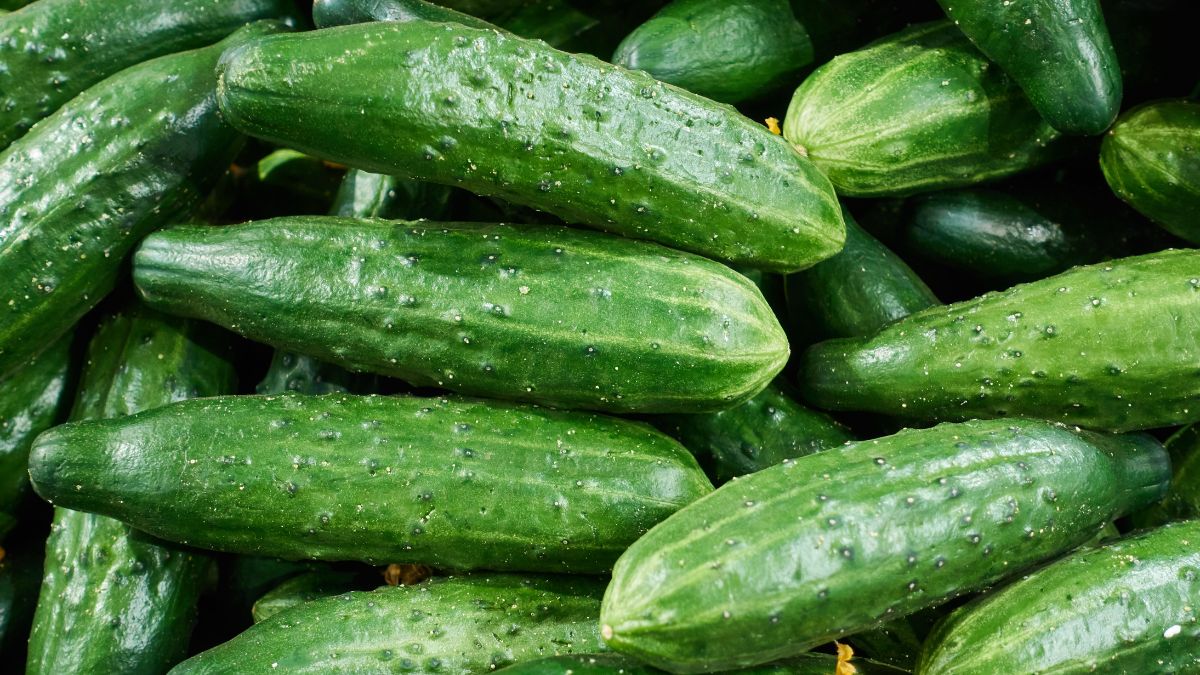A rash of food-borne illnesses and recalls in the last five months — including a listeria outbreak in cucumbers — has consumers and experts both questioning the safety of the U.S. food system. (Photo Credit: Vitalii Makarov from Getty Images)
By Jennifer Porter Gore
This article was originally published on Word In Black.
Deli cold cuts. Ready-to-eat meat, precooked chicken and prepared meals. Organic carrots, slivered onions sprinkled on fast-food hamburgers.
The list of processed or packaged foods manufacturers have recalled since the summer, due to dangerous bacterial contaminations, would make an epic feast, if consuming them weren’t so dangerous.
Since July, dozens of people have died and several dozens more have been hospitalized after consuming food tainted with E. coli and listeria, two potentially deadly food-borne bacteria. Government inspectors found tainted food in produce as well as processed meats and chicken, in breakfast items as well as lunch and dinner products.
With news of yet another recall — this time, more than 6,000 pounds of Asian flavored, ready-to-eat meat and poultry products prepared by YuShang Food Inc. of Spartanburg, South Carolina — it poses the question: is our food system really safe?
The answer depends on whom you ask.
Food Recalls Up 25%
Some experts say the nation’s food production industry, which takes in $850 billion in revenue each year, is working as designed. Federal inspectors caught contaminated food and worked with manufacturers to organize nationwide recalls.
But others point to the numerous deaths attributable to food-borne illnesses, and the dozens who were hospitalized after eating tainted food. They also note that the number of recalls this year have increased 25% over last year.
Recalled items have included meats, vegetables such as bags of organic carrots and even frozen waffles. Just last week the FDA announced a recall on cucumbers tainted with salmonella.
“People love to say we have the safest food supply in the world,” Donald Schaffner, a Rutgers University professor and food safety professor, told CNN. “I am not one of those people.”
“People love to say we have the safest food supply in the world. I am not one of those people.” – Donald Schaffner, Rutgers University
The current list of food currently under some level of recall by the U.S. Food and Drug Administration has gotten a lot of attention and continues to be alarming. Several recalled items have well-known name brands or are linked to popular products—such as the slivered onions featured on McDonald’s Quarter Pounders.
The Centers for Disease Control and Prevention also updated information on its investigation into the now fatal listeria outbreak linked to the YuShang Food Inc. products.The recall was initiated on Nov. 9 and expanded just before the Thanksgiving holiday to include additional products.
Fifth Recall Since Summer
YuShang Food products are sold in stores and online. A total of 11 illnesses, including nine hospitalizations and one death, have been reported in California, Illinois, New Jersey, and New York. The FDA has created a full list of the recalled items and product labels.
The impact of the tainted food has ranged from illness and hospitalizations to death. Several recalls were carried out with no discernible illnesses reported.
But when consumers have to double-check the safety of so many varieties of food, questions are raised. When popular brands and store chains are affected the frequency of such outbreaks becomes more obvious.
And the number of recalls, illness outbreaks and deaths lead many to ask if our food supply is getting less safe than in previous years.
The number of food recalls varies from each year. Most of the recalls begin when a product manufacturer or distributor voluntarily contacts the U.S. Food and Drug Administration because they suspect their product is tainted.
While some would say the fact that the recalls are announced means the system is working as designed, other experts disagree.
“I think the short answer is no,” said Schaffner, the Rutgers food safety expert. He believes the cluster of outbreaks are concerning, but doesn’t indicate sweeping problems that must be addressed.
“I think outbreaks are random events — and sometimes random events are spread apart, and sometimes they come close together,” he said. “I really think it’s just coincidence.”
Schaffner does, however, think there is room for improvement.
‘Safety System is Not Working’
Frank Yiannas, a former FDA deputy commissioner, agrees. In an op-ed published in Food Safety News, Yiannas argues that detecting outbreaks and illnesses “is not a sign that our food safety system is working.”
While Yiannas says he is “grateful” the public health surveillance system has improved, “the fact that the outbreaks are still happening is of concern and unacceptable.”
In the last few years, the number of recalls have increased steadily and last year they reached the highest level since the pandemic, according to the FDA.
To date this year, there have been 1,908 recalls of “food and/or cosmetics,” compared to 1,563 in 2023, FDA data show. That calculates to a 20-25% increase in recalls over the last two to three years, Darin Detwiler, a Northeastern University professor of food regulatory policy, told TODAY.com.
Last year there were more than six deaths stemming from salmonella outbreaks linked to cantaloupes and diced onions. There were also deaths associated with a listeria outbreak due to tainted peaches.
In late July this year, a fatal listeria outbreak caused by Boar’s Head deli meats led to 10 deaths and 59 hospitalizations across 19 states, according to the Centers for Disease and Control Prevention, and a recall of more than 7 million pounds of meat.
Adding two deaths from the Diamond Shruumz contamination and the recent E.coli contamination deaths, 2024 will be a record-breaking year of the worst kind.
